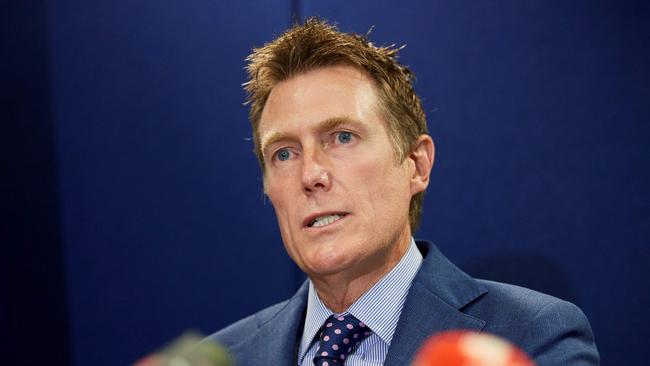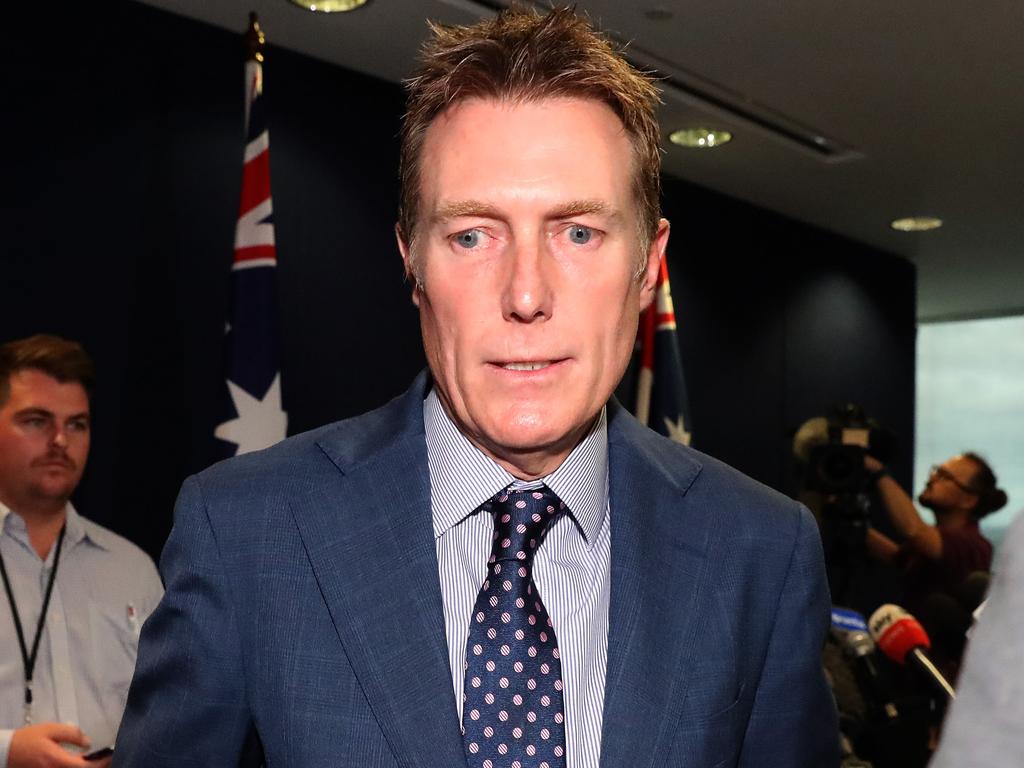Rape allegation from 33 years ago is unresolvable

At his press conference, Mr Porter vehemently denied raping the woman. Neither did they have consensual sex, he insisted. “We didn’t have anything of that nature happen between us,” he said. He was less certain about whether they had ever been alone together. He never visited her room, he said. But later he remembered that the woman had taught him and two other boys to iron their shirts. It is not clear where the ironing took place.
On the other hand, as Paul Kelly wrote on Wednesday, nobody reading the material sent to the Prime Minister, Labor frontbencher Penny Wong and Greens senator Sarah Hanson-Young and police could doubt the woman’s belief she had been raped: “The letter names many friends of the woman, who, it says, believed her account. Central to the current dilemma is the time factor and, more importantly, that the woman took her own life.” The woman’s friends and journalists who have taken up her cause will now be combing Mr Porter’s words on Wednesday and comparing them with the material they have collected to find any discrepancies. He was adamant that he and the woman had not been in contact for 33 years.
Mr Porter is now taking a few weeks off “for my sanity”. He will seek assistance for his mental health. He was under intense duress on Wednesday and close to tears. But his debating skills, honed through a long and distinguished legal and political career, came to the fore. No, he would not resign as Attorney-General. Allegations should not equal resignation: “If that happens, anyone in public life is able to be removed simply by the printing of an allegation,” he said. “Every child we raise can have their lives destroyed by online reporting of accusations alone. My guess is if I were to resign and that set a new standard, there wouldn’t be much need for an attorney-general anyway because there would be no rule of law left to protect in this country, so I will not be part of letting that happen while I am Attorney-General.” Fair enough. He should stand firm on that important principle, with Mr Morrison’s backing. Neither did Mr Porter rule out defamation proceedings against some of those making “just incredible” claims against him. Sniping from the sidelines, Malcolm Turnbull made an unhelpful call for an inquest into the woman’s death. “We don’t know for sure that she took her own life. We know for sure that she’s dead, and there needs to be an inquest,” he told the ABC. That decision is up to South Australian State Coroner, David Whittle, who is awaiting more information from police.
It remains to be seen how high a political price Mr Porter and the government will be forced to pay over the matter, especially in the febrile atmosphere generated by several sexual assault and harassment allegations, including by former Liberal staff member Brittany Higgins, who alleges she was raped in March 2019 in then defence industry minister Linda Reynolds’ parliamentary office. Reports that Senator Reynolds referred to Ms Higgins as a “lying cow” in front of staff — a remark for which she later apologised — will add to the tensions.
Australians want justice for rape victims. But they expect due process, understand that not all allegations are true, and support the presumption of innocence. After Mr Porter’s press conference, a friend of the alleged victim who was in contact with her up to the time of her death told The Australian: “I implore the government to understand that the pressure will only go up and not down and that this is not the iceberg, this is only the tip of the iceberg.” The tragedy for all concerned is that the allegation can never be resolved through the correct channel — the legal system. The woman will never have her say in court. Mr Porter will not have the opportunity to defend his reputation and clear his name legally. And the matter is so murky and vague that details of the allegation are unknown to the public or even to Mr Porter himself, judging by his answers on Wednesday. He did not appear to know, for example, until it was raised by a journalist, that the attack allegedly involved forced oral sex, followed by rape, in the woman’s room at the university. Despite the gravity of the allegations, he appeared to be in the dark.
NSW police have closed the investigation into the allegation due to “insufficient admissible evidence”. That was always likely in the absence of a complainant and in light of the woman’s request before her death for police to stop the investigation. Mr Porter has argued against any other form of inquiry, as advocated by his political opponents and some in the media. But as he acknowledged, “these are matters for other people to determine”. Any such inquiry, he said, would put him on trial to “disprove something that didn’t happen 33 years ago”.
Senator Hanson-Young is pushing for an inquiry. Anthony Albanese says it could be pursued through a coronial inquiry in South Australia, where the woman died, or an investigation similar to the High Court’s probe into allegations against judge Dyson Heydon. That parallel is problematic. The Heydon probe was able to interview several women about workplace issues concerning sexual harassment and reach conclusions. But any independent inquiry into the rape allegation will face the same obstacle the NSW police faced — lack of evidence. Such an inquiry would set a bad precedent, as Kelly wrote, forcing a minister facing 33-year-old rape accusations “to face an alternative default process” because the legal system could not put him on trial. This would be a far-reaching, adverse step for politics and for justice in our society.






Amid frenetic social media speculation and finger pointing, Attorney-General Christian Porter, the nation’s most senior law officer, did the right thing on Wednesday when he identified himself as the cabinet minister at the centre of rape allegations from 33 years ago. He had no alternative. In doing so, he cleared his 16 male cabinet colleagues from a ghastly suspicion that was hanging over them all. Mr Porter was 17 at the time of the alleged incident and the alleged victim was 16. Both were elite debaters attending an event at the University of Sydney in January 1988. The woman, who reportedly did not take the matter to NSW police until early last year, took her own life in June. Hours before doing so, she reportedly contacted police to say she did not want the investigation continued. Neither were her parents keen to see her pursue the matter. “They worried that she may have confected or embellished the allegations due to her mental illness,” according to a letter recently circulated to several politicians, including Scott Morrison, and to police.